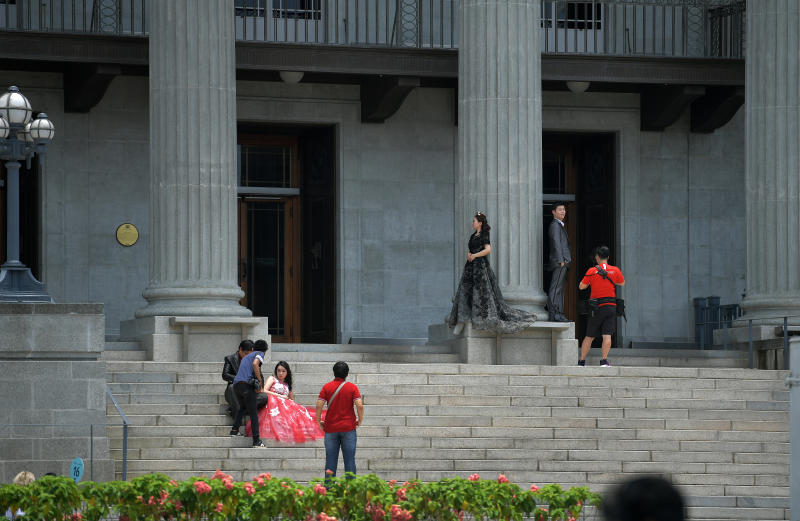Most newlyweds in Singapore want to have babies, but are not planning ahead: Survey
Sign up now: Get ST's newsletters delivered to your inbox

A new poll of 1,000 respondents has found that more than half of them knew people who are having difficulties trying for their first or second child, and nearly 70 per cent wrongly think that assistive reproductive technologies are a "magic bullet" that can solve fertility problems.
PHOTO: ST FILE
Follow topic:
SINGAPORE - Most newlyweds in Singapore want to have children within the first three years of marriage, but may not be thinking about fertility issues early enough, a survey has found.
A new poll of 1,000 respondents has found that more than half of them knew people who are having difficulties trying for their first or second child, and nearly 70 per cent wrongly think that assistive reproductive technologies are a "magic bullet" that can solve fertility problems.
Long work hours and stress from work were cited as the top obstacles couples faced in getting pregnant, leaving them too tired or not in the mood to have sex.
Voluntary welfare organisation I Love Children (ILC) released these findings on Thursday (July 4) alongside the launch of its fertility awareness campaign, which aims to educate Singaporeans and raise awareness of fertility-related issues.
Mrs Joni Ong, ILC president, said the results are a start to understanding fertility health, a topic that is often overlooked and understudied, and encouraging more couples to share their experiences in overcoming fertility issues.
Singapore's total fertility rate fell to a low of 1.14 last year, well below the replacement rate of 2.1. One reason for this is that couples are marrying later, which has an impact on fertility. In 2017, the median age for marriage was 30 years old for men and 28.4 for women, compared with 29.7 for men and 27 for women in 2006.
But even though they are marrying later, they still want children, found the ILC study, done over four weeks in May. Some 77 per cent of newlywed couples plan to have children within three years of getting married.
However, of those who were actively trying for a baby, 40 per cent said they faced difficulties in conceiving, although the reasons for this were not given.
The survey findings also showed that only 27 per cent of the respondents knew that the success rate of live births from assisted reproduction technologies is less than 50 per cent and the rate decreases with age.
These findings are a concern, said the ILC, especially when doctors are still reporting seeing patients who are 35 years old and above for fertility issues.
Dr Tan Kai Lit, an obstetrician and gynaecologist at the Thomson's Woman Clinic, said that the difficulties in conceiving increase as couples delay plans for marriage and childbirth. "Women's ovarian reserves drop with age, so the possibility of pregnancy also falls," he said.
ILC also conducted four focus group sessions with 10 doctors and 20 participants which found low awareness of fertility health - some assumed that they would be fertile as long as they were physically fit, and many did not know how often they needed to have sex to conceive.
But a person may be infertile even if he or she is physically healthy, and couples should have sex two to three times a week if they want to conceive.
ILC said its survey showed couples should be aware of potential fertility issues earlier, and go for health screenings which can uncover certain medical conditions, like irregular or abnormal menstrual bleeding, that could affect their chances of natural conception.
A fertility health check typically consists of a consultation with a doctor, as well as an ultrasound scan and hormone blood test for the wife, and a semen analysis for the husband.
Forty per cent of the survey respondents said they would consider going for a fertility health check, while 42 per cent felt such checks were expensive. The price range of these checks at private hospitals and clinics is between $450 and $1,200.
As part of its campaign, ILC has tied up with Thomson Fertility Centre to give 200 fertility health checks worth $400 each to couples. It will also be organising a roadshow with fertility-related talks by experts, and is encouraging couples to go for checks through visuals on MRT station doors and inside train cabins.
Civil servant Weng Wanyi, 35, who faced some setbacks when trying to have a second child, said: "We don't talk enough about fertility. For some people, the journey is very fast. Within one year of marriage, you're pregnant. But for some people, it's a lot harder."

